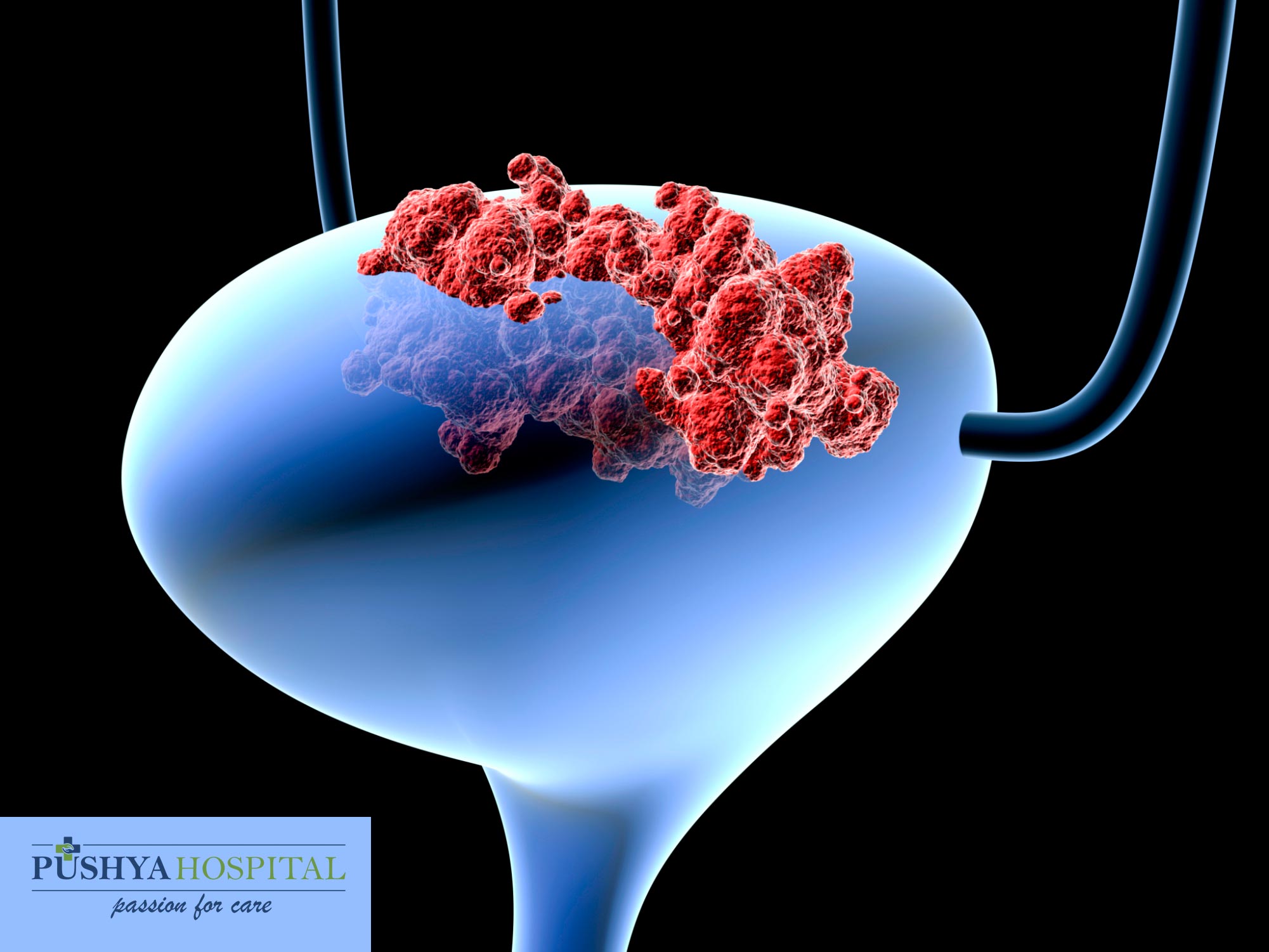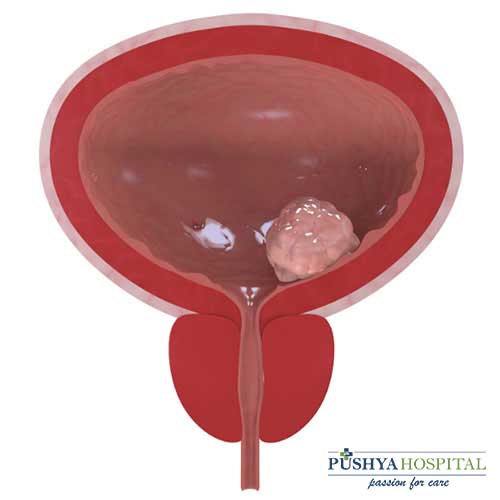OVERVIEW
Bladder cancer is one of the most common cancers in the world; every year almost 68,000 cases come in light in India. It occurs more in males in the comparison to females. Bladder cancer begins in urothelial cells, it is a line inside our bladder- it is a hollow, muscular organ in the abdomen which stores urine. Generally, bladder cancer happens in the bladder, but this cancer may take place in other parts of a urinary tract drainage system.

There are three types of Bladder Cancer
- Urothelial Carcinoma
- Squamous Cell Carcinoma
- Adenocarcinoma
Causes & Reasons
Causes
- Smoking and other tobacco consumption- most common reason of Bladder cancer
- Chemical exposure, at the job which happens frequently
- Past radiation exposure
- Parasitic infectionlike shistosomiosis, it happens out of India.
Symptoms
- Painless blood in urine with clots is most common presentation of Bladder cancer
- Painful Urination
- Pelvic pain
- Back Pain
- Frequent urination
How we can evaluate (Investigation)
- Urine routine test - It shows RBCs in urine.
- Urine Cytology - It shows cancer cells in urine but in very earlier cases may be missed to detect.
- Ultrasound – Through Ultrasound size of bladder cancer, number of masses, swelling in the kidney, mass in kidney and ureter, and prostatic enlargement can be detected.
- CT Scan/MRI - This examination provides more detailed information on bladder cancer in the comparison of ultrasound.
- Cystoscopy and biopsy - This diagnosis tool informs about grading and staging of bladder cancer. Cystoscopy is done by passing urethra under anesthesia. Pieces of mass are resected and sent for biopsy, through biopsy many things come to know as grading(Low or high grade)and noninvasive (superficial bladder cell) or invasive (bladder muscle infiltration).
- BTA or Immunotherapy test
Treatment Options
Treatment options decides on the basis of grading or staging of bladder cancer as
Grading
- Low Grade
- High Grade
Staging
- Superficial Type
- Invasive Type

At Pushya Hospital, we understand Bladder Cancer well and provide following treatment options for Bladder Cancer
Superficial Low grade
TURBT (Transurethral resection of bladder mass) is sufficient for superficial low-grade bladder cancer, Patient should keep up his follow up, ultrasound and cystoscopy.
Superficial High Grade
At this grade, TURBT and intravesical BCG are recommended.
Invasive Bladder Cancer
Radical cystectomy with orthopedic neobladder or ileal conduit with chemotherapy is recommended.
Prognosis
Superficial low-grade bladder has a good prognosis, it has 50% chances of recurrence in five years but chances of progression or invading into bladder muscle are very less.
High grade, superficial bladder have high chances of progression if the tumor is multiple, large in size, the presence of carcinoma in situ, recur after BCG therapy. Recurrence of cancer could at the rate 50-70% in 5 years respectively.
After radical cystectomy survival depends on the stage of bladder cancer, in early-stage tumor survival is 70-80% and at an advanced stage, it is considered 15-30%.



